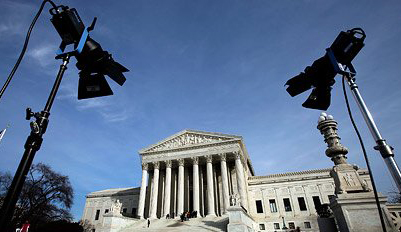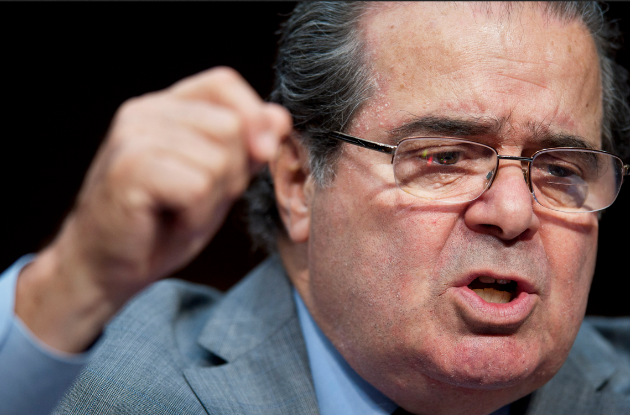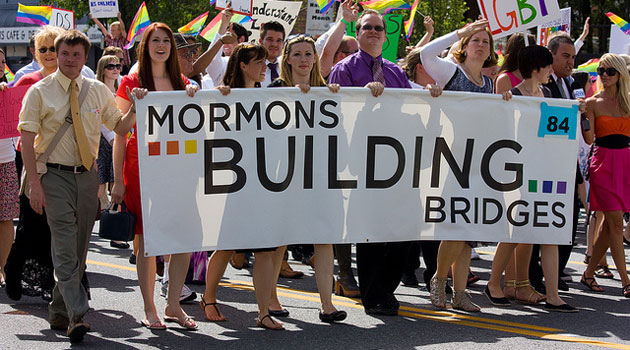
Davis Baker, 24, center, of Phoenix, Arizona, celebrates two Supreme Court rulings Wednesday that broadened marriage equality.Pete Marovich/MCT/Zuma
In today’s other decision on gay marriage, the Supreme Court declined to allow supporters of California’s Proposition 8, which banned gay marriage, to appeal their case in federal court. Supporters could defend Prop 8 in the initial suit in California, the court said, because California recognized their standing, but they aren’t allowed to appeal their loss because they don’t have appellate standing according to federal rules. Since a district court had previously ruled Prop. 8 unconstitutional, this means the issue has been decided. Gay marriage is legal in California.
But this decision bothers me. The problem is that both the executive and legislative branches in California declined to defend Proposition 8 in court. This left it to the proponents of Prop. 8 to do so, but the Supreme Court decided today that they don’t have a “personal stake” in the law, no matter how deeply they feel about it. I think the dissent gets at the core problem here:
The Court’s reasoning does not take into account the fundamental principles or the practical dynamics of the initiative system in California, which uses this mechanism to control and to bypass public officials—the same officials who would not defend the initiative, an injury the Court now leaves unremedied. The Court’s decision also has implications for the 26 other States that use an initiative or popular referendum system and which, like California, may choose to have initiative proponents stand in for the State when public officials decline to defend an initiative in litigation.
 In California, it’s routine for the people to pass initiatives that neither the governor nor the legislature supports. In fact, that was the whole point of the initiative process when it was created. In cases like these, of course the governor and legislature are going to decline to defend the law in court. With today’s decision, the Supreme Court is basically gutting the people’s right to pass initiatives that elected officials don’t like and then to defend them all the way to the highest court in the land.
In California, it’s routine for the people to pass initiatives that neither the governor nor the legislature supports. In fact, that was the whole point of the initiative process when it was created. In cases like these, of course the governor and legislature are going to decline to defend the law in court. With today’s decision, the Supreme Court is basically gutting the people’s right to pass initiatives that elected officials don’t like and then to defend them all the way to the highest court in the land.
To me, this has neither the flavor of justice nor of democratic governance, regardless of whether I like the outcome.
UPDATE: I originally wrote that the California Supreme Court had ruled Prop 8 unconstitutional. It was actually a federal district court that did that. Apologies for the error. The text has been corrected.


















